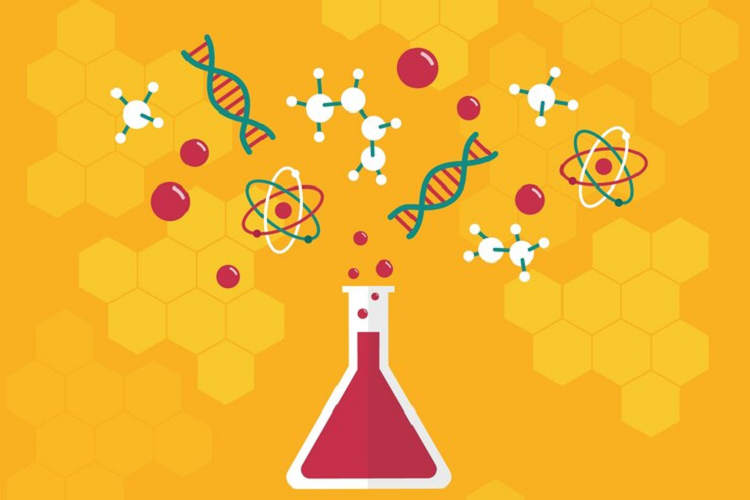Step into the world of IB Chemistry, and you’ll find a realm where curiosity meets rigor, and education transcends the pages of textbooks.
Imagine a classroom where students debate the latest scientific research with the same fervor as a courtroom drama, where the periodic table is not just memorized but comes alive through real-world applications.
This is the essence of the International Baccalaureate Chemistry program, a course that doesn’t just churn out chemists but pioneers who will shape the future of science.

The IB Chemistry Difference
Traditional chemistry classes might have you picturing rows of students silently scribbling notes as a teacher drones on about atomic structures. IB Chemistry, however, flips the script.
Here, students are as likely to lead the discussion as their teachers, delving into how chemical principles underpin breakthroughs in sustainable energy or medicine. The IB’s global recognition stems from its ability to mold students into thinkers and innovators, not just learners.
Chemistry Education Reimagined
In a traditional setting, chemistry might seem like a collection of abstract concepts. IB Chemistry is a tapestry of interconnected ideas, with threads that stretch into the real world.
It’s a curriculum that asks, “How does this chemical principle help us understand climate change?” or “What role does chemistry play in developing new technologies?”
The IB learner profile encourages students to be inquirers and thinkers, to be knowledgeable but also caring, to take risks but remain balanced – a holistic approach that traditional chemistry courses often overlook.
A Synergy of Theory and Practice
The IB Chemistry curriculum is a carefully crafted blend of theory and hands-on experimentation. Students don’t just learn about the laws of thermodynamics; they apply them in experiments that challenge their understanding and creativity.
Assessments are not mere memory tests but rigorous evaluations of a student’s ability to weave together theoretical knowledge with practical application.
This balance is the cornerstone of IB Chemistry, ensuring that students are not just well-versed in chemical concepts but adept at applying them in complex, real-world scenarios.
Core Topics in IB Chemistry
Dive into the core topics of the IB Chemistry syllabus, and you’ll find a focus on innovation at every turn. Take stoichiometry, for example. Students might explore this concept through the lens of pharmaceutical drug design, calculating precise dosages and considering the implications of miscalculations.
In organic chemistry, they might investigate the synthesis of biodegradable plastics, challenging the status quo of environmental impact. These are not just lessons; they are invitations to change the world.
IB Chemistry thrives on inquiry. Imagine a lab where students are given a mysterious compound and tasked with determining its structure using only their knowledge and a set of analytical techniques.
They hypothesize, test, and debate their findings, learning to trust the scientific process. This inquiry-based approach doesn’t just teach students chemistry; it teaches them to be scientists – skeptical, curious, and relentless in their pursuit of knowledge.
Interactive Learning
The pedagogy of IB Chemistry is anything but passive. Students might find themselves in a ‘flipped classroom’, where they’ve studied the material at home and come to class ready to engage in deep discussions or complex problem-solving activities.
Group projects are common, fostering collaboration and communication skills that are vital in the scientific community. Digital simulations might transport students inside a molecule, offering a perspective that a textbook simply can’t provide.
The Internal Assessment
The Internal Assessment is where IB Chemistry students shine as independent researchers. They choose a topic, design an experiment, and pursue their scientific questions with the tenacity of a seasoned researcher.
This isn’t just a project; it’s a journey into the unknown, one that requires creativity, critical thinking, and a willingness to venture beyond the known boundaries of chemistry.
Equipping Students for the Scientific Frontier
Students who emerge from the IB Chemistry program are not just prepared for the next exam; they’re ready for the next big challenge in science.
They go on to tackle issues like antibiotic resistance, clean energy, and nanotechnology.
The program doesn’t just impart knowledge; it instills a mindset of innovation and a drive to make a difference in the world.
Ethics and Sustainability
In IB Chemistry, students learn that their actions in the lab can have far-reaching consequences.
They engage with case studies that challenge them to consider the ethical dimensions of chemical production and waste management.
Sustainability is not an afterthought but a critical component of their education, ensuring that as they push the boundaries of chemistry, they do so with an eye toward the well-being of our planet and future generations.
The Transformative Power of IB Chemistry
IB Chemistry is a transformative force in education, one that reshapes how students view the world and their role in it. It’s a program that teaches them not just to navigate the complexities of chemistry but to use their knowledge to forge paths to a better future.
As we consider the evolution of chemistry education, it’s clear that the IB Chemistry program is more than a course – it’s a launchpad for the next generation of scientific leaders, ready to take on the world’s most pressing challenges.


